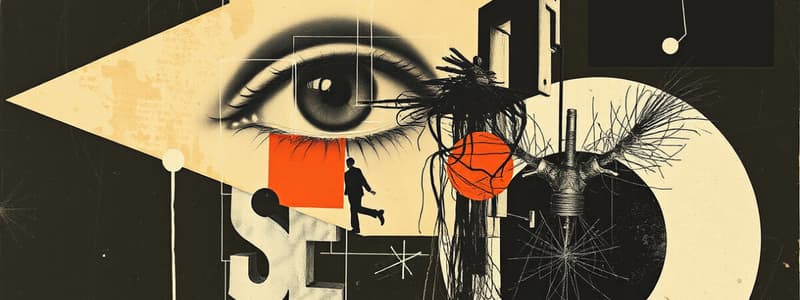Podcast
Questions and Answers
An information literate person will enhance the information literacy process with further knowledge of some skills to ______ it.
An information literate person will enhance the information literacy process with further knowledge of some skills to ______ it.
execute
Identifying/recognizing information ______ is where all the basis inquiry begins.
Identifying/recognizing information ______ is where all the basis inquiry begins.
needs
Determining ______ of information is where you will fap various primary or secondary sources.
Determining ______ of information is where you will fap various primary or secondary sources.
sources
Analyzing and evaluating the quality of ______ is the next thing to investigate.
Analyzing and evaluating the quality of ______ is the next thing to investigate.
Organizing, storing or archiving information is useful to develop a system of ______ all information.
Organizing, storing or archiving information is useful to develop a system of ______ all information.
Using information in an ethical, efficient and ______ way is important to respect the owners of secondary sources.
Using information in an ethical, efficient and ______ way is important to respect the owners of secondary sources.
The process of information literacy also calls for the information literate person to create their own ______.
The process of information literacy also calls for the information literate person to create their own ______.
Knowing when to stop the information ______ is an important characteristic of an information literate person.
Knowing when to stop the information ______ is an important characteristic of an information literate person.
Flashcards are hidden until you start studying
Study Notes
Information Literacy Process Characteristics
- Information literacy enhances skills necessary for effective inquiry and knowledge acquisition.
- Identifying Information Needs: Essential first step in the inquiry process; requires clarity on desired information types and topics.
- Determining Sources of Information: Involves identifying and evaluating various primary and secondary sources for potential research.
- Locating or Searching for Information: Includes understanding different media types and methods for obtaining relevant information.
- Analyzing and Evaluating Quality of Information: Critical assessment stage; involves judging the usefulness and credibility of the information gathered.
- Organizing, Storing, or Archiving Information: Necessitates developing a systematic approach for managing information to ensure easy access and retrieval.
- Using Information Ethically: Emphasizes respect for copyright and intellectual property; requires proper citation of secondary sources utilized.
- Efficiency and Effectiveness: Information is considered efficient if it addresses the inquiry successfully; effectiveness ties back to the problem-solving needs.
- Creating and Communicating New Knowledge: Encourages individuals to contribute original insights or solutions to existing knowledge, expanding the body of information.
- Knowing When to Stop Information Search: Understanding the point at which sufficient information has been gathered, preventing unnecessary prolongation of the search process.
Studying That Suits You
Use AI to generate personalized quizzes and flashcards to suit your learning preferences.




